Overview
The Zoom link:
https://us06web.zoom.us/webinar/register/5716487609472/WN_HvF5i4ETR0uPGWf0YUt66Q
This link will bring you to the Webinar Registration page. After you fill up your name and email address, you can click the "register" button and the system will generate and show a link for you to join the webinar immediately.
This webinar, called "The best of EDA research in 2021", invites the researchers to give talks about their papers that received best paper awards from EDA-related journals (including IEEE TCAD and ACM TODAES) and conferences (including MICRO, DAC, ICCAD, DATE, ASP-DAC, and ESWEEK) in Year 2021.
This is a two-day webinar at 10:00AM-11:40AM EDT/UTC-4 (i.e., 10:00PM-11:20PM UTC+8), April 11-12 (Mon-Tue), 2022. The first day includes four talks and the second day has five talks, where Talks 1-4 are on April 11 and Talks 5-9 are on April 12. Each talk is 20 minutes long and is divided into a 15-min presentation session and a 5-min Q&A session.

In 2022, the Design Automation WebiNar (DAWN) was held virtually over two days with nearly 325 attendees from 16 countries around the world including those in the Americas, Europe, and Asia. This virtual format provides members of the EDA community greater access to talks from industry experts.
Watch all of the DAWN talks here
Moderators
Tsung-Yi Ho, The Chinese University of Hong Kong, Hong Kong
Yuan-Hao Chang, Academia Sinica, Taiwan
April 11, 2022 (EDT/UTC-4)
April 12, 2022 (EDT/UTC-4)
Talk 1: Hardware/Software Co-Exploration of Neural Architectures (Best Paper Award in IEEE TCAD)
(10AM-10:20AM, EDT/UTC-4, April 11, 2022)
We propose a novel hardware and software co-exploration framework for efficient neural architecture search (NAS). Different from existing hardware-aware NAS which assumes a fixed hardware design and explores the NAS space only, our framework simultaneously explores both the architecture search space and the hardware design space to identify the best neural architecture and hardware pairs that maximize both test accuracy and hardware efficiency. Such a practice greatly opens up the design freedom and pushes forward the Pareto frontier between hardware efficiency and test accuracy for better design tradeoffs. The framework iteratively performs a twolevel (fast and slow) exploration. Without lengthy training, the fast exploration can effectively fine-tune hyperparameters and prune inferior architectures in terms of hardware specifications, which significantly accelerates the NAS process. Then, the slow exploration trains candidates on a validation set and updates a controller using the reinforcement learning to maximize the expected accuracy together with the hardware efficiency. In this article, we demonstrate that the co-exploration framework can effectively expand the search space to incorporate models with high accuracy, and we theoretically show that the proposed two-level optimization can efficiently prune inferior solutions to better explore the search space. The experimental results on ImageNet show that the co-exploration NAS can find solutions with the same accuracy, 35.24% higher throughput, 54.05% higher energy efficiency, compared with the hardware-aware NAS.
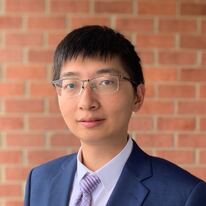
Weiwen Jiang
George Mason University
wjiang8@gmu.edu
Dr. Weiwen Jiang joined the ECE department at George Mason University as an Assistant Professor in Fall 2021. He was a Postdoctoral Associate at the University of Notre Dame. He received the Ph.D. degree from Chongqing University in 2019. From 2017 to 2019, he was a research scholar at the University of Pittsburgh. His research works have won Best Paper Awards in IEEE TCAD'21, ICCD'17, and NVMSA'15. He is the receipt of four Best Paper Nominations in ASP-DAC'16, DAC'19, CODES+ISSS'19, ASP-DAC'20, and the Top Winning Awards at IEEE Services Hackathon. He built the first co-design framework, QuantumFlow, to demonstrate the quantum advantage in designing neural network onto a quantum computer, which was published in Nature Communications.
Talk 2: BOOM-Explorer: RISC-V BOOM Microarchitecture Design Space Exploration Framework (Best Paper Award in ICCAD)
(10:20AM-10:40AM, EDT/UTC-4, April 11, 2022)
The microarchitecture design of a processor has been increasingly difficult due to the large design space and time-consuming verification flow. Previously, researchers rely on prior knowledge and cycle-accurate simulators to analyze the performance of different microarchitecture designs but lack sufficient discussions on methodologies to strike a good balance between power and performance. This work proposes an automatic framework to explore microarchitecture designs of the RISCV Berkeley Out-of-Order Machine (BOOM), termed as BOOM-Explorer, achieving a good trade-off on power and performance. Firstly, the framework utilizes an advanced microarchitecture-aware active learning (MicroAL) algorithm to generate a diverse and representative initial design set. Secondly, a Gaussian process model with deep kernel learning functions (DKL-GP) is built to characterize the design space. Thirdly, correlated multi-objective Bayesian optimization is leveraged to explore Pareto-optimal designs. Experimental results show that BOOM-Explorer can search for designs that dominate previous arts and designs developed by senior engineers in terms of power and performance within a much shorter time.
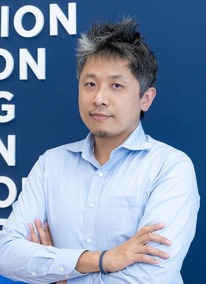
Bei Yu
The Chinese University of Hong Kong
byu@cse.cuhk.edu.hk
Bei Yu is an Associate Professor at the Department of Computer Science and Engineering, The Chinese University of Hong Kong. He received the Ph.D degree from Electrical and Computer Engineering, University of Texas at Austin, USA in 2014, and the M.S. degree in Computer Science from Tsinghua University, China in 2010. His current research interests include machine learning and combinatorial algorithm with applications in electronic design automation (EDA) and computer vision. He has served as TPC Chair of 1st ACM/IEEE Workshop on Machine Learning for CAD (MLCAD), served in the program committees of DAC, ICCAD, DATE, ASPDAC, ISPD, the editorial boards of ACM Transactions on Design Automation of Electronic Systems (TODAES), Integration, the VLSI Journal, and IET Cyber-Physical Systems: Theory & Applications. He is Editor of IEEE TCCPS Newsletter and Chair of IEEE CEDA Hong Kong Chapter.
Dr. Yu received nine Best Paper Awards from Design, Automation and Test in Europe Conference (DATE) 2022, International Conference on Computer-Aided Design (ICCAD) 2021 & 2013, Asia and South Pacific Design Automation Conference (ASPDAC) 2021 & 2012, International Conference on Tools with Artificial Intelligence (ICTAI) 2019, Integration, the VLSI Journal in 2018, International Symposium on Physical Design (ISPD) 2017, SPIE Advanced Lithography Conference 2016, five other Best Paper Award Nominations (DATE 2021, ASPDAC 2019, DAC 2014, ASPDAC 2013, and ICCAD 2011), seven ICCAD/ISPD/ICDAR contest awards, IBM Ph.D. Scholarship in 2012, SPIE Education Scholarship in 2013, and EDAA Outstanding Dissertation Award in 2014.
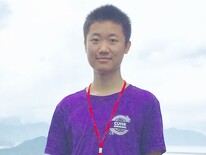
Bai Chen
The Chinese University of Hong Kong
cbai@cse.cuhk.edu.hk
I am currently a second-year Ph.D. student at the Department of Computer Science and Engineering of The Chinese University of Hong Kong under the supervision of Prof. Bei Yu and co-supervised by Prof. Martin D.F. Wong. Previously, I received my B.Eng. from The University of Electronic Science and Technology of China (UESTC) in 2020.
Talk 3: APOLLO: An Automated Power Modeling Framework for Runtime Power Introspection in High-Volume Commercial Microprocessors (Best Paper Award in MICRO)
(10:40AM-11AM, EDT/UTC-4, April 11, 2022)
Accurate power modeling is crucial for energy-efficient CPU design and runtime management. An ideal power modeling framework needs to be accurate yet fast, achieve high temporal resolution (ideally cycle-accurate) yet with low runtime computational overheads, and easily extensible to diverse designs through automation. Simultaneously satisfying such conflicting objectives is challenging and largely unattained despite significant prior research. In this talk, I will introduce our work APOLLO with multiple key attributes. First, it supports fast and accurate design-time power model simulation, handling millions-of-cycles benchmarks in minutes with an emulator. Second, it incorporates an unprecedented low-cost runtime on-chip power meter in CPU RTL for per-cycle power tracing. Third, the development process of this method is fully automated and applies to any given design solution. This method has been validated on high-volume commercial microprocessors Neoverse N1 and Cortex-A77.
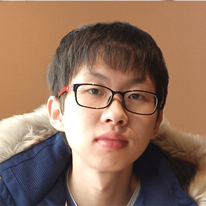
Zhiyao Xie
The Hong Kong University of Science and Technology
eezhiyao@ust.hk
I am an Assistant Professor at the ECE Department of Hong Kong University of Science and Technology (HKUST). I received my Ph.D. degree from ECE Department of Duke University in 2022, advised by Prof. Yiran Chen and Prof. Hai (Helen) Li and B.Eng. degree from City University of Hong Kong in 2017. My research interests include cross-disciplinary topics in electronic design automation, VLSI design, computer architecture, and machine learning. I am especially experienced in machine learning for hardware design. I am the recipient of MICRO 2021 Best Paper Award.
Talk 4: Gemmini: Enabling Systematic Deep-Learning Architecture Evaluation via Full-Stack Integration (Best Paper Award in DAC)
(11AM-11:20AM, EDT/UTC-4, April 11, 2022)
DNN accelerators are often developed and evaluated in isolation without considering the cross-stack, system-level effects in real-world environments. This makes it difficult to appreciate the impact of Systemon-Chip (SoC) resource contention, OS overheads, and programming-stack inefficiencies on overall performance/energy-efficiency. To address this challenge, we present Gemmini, an open-source, full-stack DNN accelerator generator. Gemmini generates a wide design-space of efficient ASIC accelerators from a flexible architectural template, together with flexible programming stacks and full SoCs with shared resources that capture system-level effects. Gemmini-generated accelerators have also been fabricated, delivering up to three orders-of-magnitude speedups over high-performance CPUs on various DNN benchmarks.
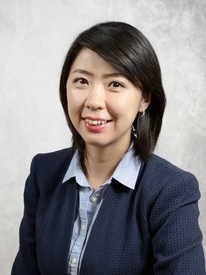
Sophia Shao
University of California, Berkeley
ysshao@berkeley.edu
I am an Assistant Professor and an SK Hynix Faculty Fellow at the Electrical Engineering and Computer Sciences department of University of California, Berkeley. Previously, I was a Senior Research Scientist at NVIDIA Research. I received my Ph.D. degree in 2016 and S.M. degree in 2014 from Harvard University. My research interests are in the area of computer architecture, with a special focus on specialized accelerator, heterogeneous architecture, and agile VLSI design methodology. My work has been awarded the Best Paper Award at DAC 2021, the Best Paper Award at JSSC 2020, a Best Paper Award at MICRO 2019, Top Picks in Computer Architecture (2014), and Honorable Mentions (2019*2). My Ph.D. dissertation was nominated by Harvard for ACM Doctoral Dissertation Award. I am an SK Hynix Faculty Fellow and a recipient of a Google Faculty Rising Stars Award in Systems Research, a Facebook Research Award, and the inaugural Dr. Sudhakar Yalamanchili Award.
Talk 5: DREAMPlace: Deep Learning Toolkit-Enabled GPU Acceleration for Modern VLSI Placement (Best Paper Award in IEEE TCAD)
(10AM-10:20AM, EDT/UTC-4, April 12, 2022)
Placement for very large-scale integrated (VLSI) circuits is one of the most important steps for design closure. We propose a novel GPU-accelerated placement framework DREAMPlace, by casting the analytical placement problem equivalently to training a neural network. Implemented on top of a widely adopted deep learning toolkit PyTorch, with customized key kernels for wirelength and density computations, DREAMPlace can achieve around 40× speedup in global placement without quality degradation compared to the state-of-the-art multithreaded placer RePlAce. We believe this work shall open up new directions for revisiting classical EDA problems with advancements in AI hardware and software.

Yibo Lin
Peking University
yibolin@pku.edu.cn
I am an assistant professor in the School of Integrated Circuits at Peking University. I received the Ph.D. degree in Electrical and Computer Engineering from the University of Texas at Austin in 2018 advised by Prof. David Z. Pan and the B.S. degree in Microelectronics from Shanghai Jiaotong University in 2013. My research interests include physical design, machine learning applications, emerging technology in VLSI CAD, and hardware acceleration. I am a recipient of the Best Paper Awards at DATE 2022, TCAD 2021, DAC 2019, Integration, the VLSI Journal 2018, and SPIE Advanced Lithography Conference 2016.
Talk 6: TreeNet: Deep Point Cloud Embedding for Routing Tree Construction (Best Paper Award in ASP-DAC)
(10:20AM-10:40AM, EDT/UTC-4, April 12, 2022)
In the routing tree construction, both wirelength (WL) and pathlength (PL) are of importance. Among all methods, PD-II and SALT are the two most prominent ones. However, neither PD-II nor SALT always dominates the other one in terms of both WL and PL for all nets. In addition, estimating the best parameters for both algorithms is still an open problem. In this paper, we model the pins of a net as point cloud and formalize a set of special properties of such point cloud. Considering these properties, we propose a novel deep neural net architecture, TreeNet, to obtain the embedding of the point cloud. Based on the obtained cloud embedding, an adaptive workflow is designed for the routing tree construction. Experimental results show that the proposed TreeNet is superior to other mainstream models for the point cloud on classification tasks. Moreover, the proposed adaptive workflow for the routing tree construction outperforms SALT and PD-II in terms of both efficiency and effectiveness.

Yuzhe Ma
Hong Kong University of Science and Technology
yuzhema@ust.hk
I am an Assistant Professor at the Microelectronics Thrust of The Hong Kong University of Science and Technology (Guangzhou) . Previously, I was a Senior Research Scientist at Huawei Hong Kong Research Center. I received my Ph.D. degree in 2020 from The Chinese University of Hong Kong advised by Prof. Bei Yu. My research interests are on the cross-disciplinary study of electronic design automation and machine learning, including agile VLSI design methodologies, machine learning-aided VLSI design, and hardware-friendly machine learning. I am a recipient of the Best Paper Awards at ICCAD 2021, ASPDAC 2021, and ICTAI 2019.
Talk 7: Intermittent-Aware Neural Architecture Search (Best Paper Award in CODES+ISSS)
(10:40AM-11AM, EDT/UTC-4, April 12, 2022)
Intermittently executing deep neural network (DNN) inference powered by ambient energy, paves the way for sustainable and intelligent edge applications. Neural architecture search (NAS) has achieved great success in automatically finding highly accurate networks with low latency. However, we observe that NAS attempts to improve inference latency by primarily maximizing data reuse, but the derived solutions when deployed on intermittent systems may be inefficient, such that the inference may not satisfy an end-to-end latency requirement and, more seriously, they may be unsafe given an insufficient energy budget. This work proposes iNAS, which introduces intermittent execution behavior into NAS. In order to generate accurate neural networks and corresponding intermittent execution designs that are safe and efficient, iNAS finds the right balance between data reuse and the costs related to progress preservation and recovery, while ensuring the power-cycle energy budget is not exceeded. The solutions found by iNAS and an existing HW-NAS were evaluated on a Texas Instruments device under intermittent power, across different datasets, energy budgets and latency requirements. Experimental results show that in all cases the iNAS solutions safely meet the latency requirements, and substantially improve the end-to-end inference latency compared to the HW-NAS solutions.
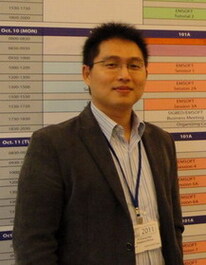
Pi-Cheng Hsiu
Academic Sinica
pchsiu@citi.sinica.edu.tw
Pi-Cheng Hsiu is a Research Fellow and Deputy Director of the Research Center for Information Technology Innovation (CITI), Academia Sinica, where he leads the Embedded and Mobile Computing Laboratory, and is a Jointly Appointed Professor with National Taiwan University and with National Chi Nan University. Upon receipt of the Ph.D. degree in computer science and information engineering from National Taiwan University, he joined CITI as an Assistant Research Fellow in 2009, and was promoted to an Associate Research Fellow in 2013 and to a Research Fellow in 2018. He was a Visiting Scholar with the University of Illinois at Urbana-Champaign in 2007 and with the University of Pittsburgh in 2019.
Dr. Hsiu's research goal is to realize Intermittent Artificial of Things (iAIoT), enabling battery-less IoT devices to intermittently execute deep neural networks via ambient power. His work has been awarded the Best Paper Award at IEEE/ACM CODES+ISSS 2020 and 2021 in a row, and nominated for the Best Paper Award in 2019. He is a recipient of the 2021-22 Outstanding Elite Award of the Chung Hwa Rotary Educational Foundation, the 2019 Young Scholars Creativity Award of the Foundation for the Advancement of Outstanding Scholarship, the 2019 Exploration Research Award of the Pan Wen Yuan Foundation, and the 2015 Scientific Paper Award of the Y. Z. Hsu Science and Technology Memorial Foundation.

Hashan Roshantha Mendis
Academic Sinica
rosh.mendis@citi.sinica.edu.tw
Hashan Roshantha Mendis is currently a Postdoctoral Research Fellow at the Research Center for Information Technology Innovation (CITI), Academia Sinica, Taiwan. He received his MSc. and Eng.D degrees respectively from the Department of Electronics and Department of Computer Science in the University of York, UK, in 2011 and 2017. His research interests include intermittently-powered embedded systems, embedded deep learning, as well as the design and optimization of multi/many-core systems. His work has received the Best Paper Award at CODES+ISSS 2020 and 2021, nominated for the Best Paper Award at CODES+ISSS 2019 and the Best Student Paper Award at SIGMAP 2016.
Talk 8: A GPU-accelerated Deep Stereo-LiDAR Fusion for Real-time High-precision Dense Depth Sensing (Best Paper Award in DATE)
(11AM-1:20AM, EDT/UTC-4, April 12, 2022)
Active LiDAR and stereo vision are the most commonly used depth sensing techniques in autonomous vehicles. Each of them alone has weaknesses in terms of density and reliability and thus cannot perform well on all practical scenarios. Recent works use deep neural networks (DNNs) to exploit their complementary properties, achieving a superior depth-sensing. However, these state-of-the-art solutions are not satisfactory on real-time responsiveness due to the high computational complexities of DNNs. In this paper, we present FastFusion, a fast deep stereo-LiDAR fusion framework for real-time high-precision depth estimation. FastFusion provides an efficient two-stage fusion strategy that leverages binary neural network to integrate stereoLiDAR information as input and use cross-based LiDAR trust aggregation to further fuse the sparse LiDAR measurements in the back-end of stereo matching. More importantly, we present a GPU-based acceleration framework for providing a low latency implementation of FastFusion, gaining both accuracy improvement and real-time responsiveness. In the experiments, we demonstrate the effectiveness and practicability of FastFusion, which obtains a significant speedup over state-of-the-art baselines while achieving comparable accuracy on depth sensing.

Gang Chen
Sun Yat-sen University
cheng83@mail.sysu.edu.cn
Gang Chen is currently an Associate Professor at the school of Computer Science, Sun Yat-sen University. He received his PhD degree in Computer Science in 2016, from Technical University of Munich, Germany, and his M.S. degree in Control Science and Engineering in 2011, from Xi'an Jiaotong University, China. He is a recipient of the best paper awards on DATE 2021, ICET 2021, and ESTImedia 2020 and best paper candidate awards on CODES+ISSS 2020. He serves as an Associate Editor of the Journal of Circuits, Systems and Computers. His research interests include high-performance computing and embedded systems design particularly for the automotive and robotics domain.
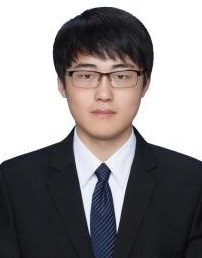
Haitao Meng
Technical University of Munich
Haitao.meng@tum.de
Haitao Meng currently is studying for his PhD degree at Technical University of Munich under the supervision of Prof. Alois Knoll and co-supervised by Prof. Gang Chen. He received M.Sc degree in computer science from Northeastern University, China. He is a recipient of the best paper award on DATE 2021 and best paper candidate award on CODES+ISSS 2020. His research interests include stereo estimation, high-performance computing, and real-time images processing.
Talk 9: An Energy-aware Online Learning Framework for Resource Management in Heterogeneous Platforms (Best Paper Award in ACM TODAES)
(11:20AM-11:40AM, EDT/UTC-4, April 12, 2022)
Mobile platforms must satisfy the contradictory requirements of fast response time and minimum energy consumption as a function of dynamically changing applications. To address this need, systems-on-chip (SoC) that are at the heart of these devices provide a variety of control knobs, such as the number of active cores and their voltage/frequency levels. Controlling these knobs optimally at runtime is challenging for two reasons. First, the large configuration space prohibits exhaustive solutions. Second, control policies designed offline are at best sub-optimal, since many potential new applications are unknown at design-time. We address these challenges by proposing an online imitation learning approach. Our key idea is to construct an offline policy and adapt it online to new applications to optimize a given metric (e.g., energy). The proposed methodology leverages the supervision enabled by power-performance models learned at runtime. We demonstrate its effectiveness on a commercial mobile platform with 16 diverse benchmarks. Our approach successfully adapts the control policy to an unknown application after executing less than 25% of its instructions.
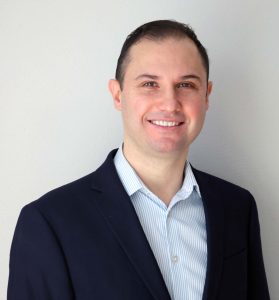
Umit Ogras
University of Wisconsin-Madison
uogras@wisc.edu
Umit Y. Ogras received his Ph.D. degree in Electrical and Computer Engineering from Carnegie Mellon University, Pittsburgh, PA, in 2007. After that, he worked as a research scientist at the Strategic CAD Laboratories, Intel Corporation until 2013. Then, he joined the faculty of School of Electrical, Computer and Energy Engineering at Arizona State University (2013-2020). Currently, he is an Associate Professor at the Department of Electrical and Computer Engineering at University of Wisconsin-Madison.

Sumit K. Mandal
University of Wisconsin-Madison
skmandal@wisc.edu
Sumit K. Mandal received his dual (B.Tech + M.Tech) degree in Electronics and Electrical Communication Engineering from IIT Kharagpur in 2015. After that, he was a Research & Development Engineer in Synopsys, Bangalore (2015-2017). Currently, he is pursuing Ph.D. in University of Wisconsin-Madison. He received best paper award from ACM TODAES in 2021. He is expected to graduate on June, 2022. Details of his research work can be found in https://sumitkmandal.ece.wisc.edu/
